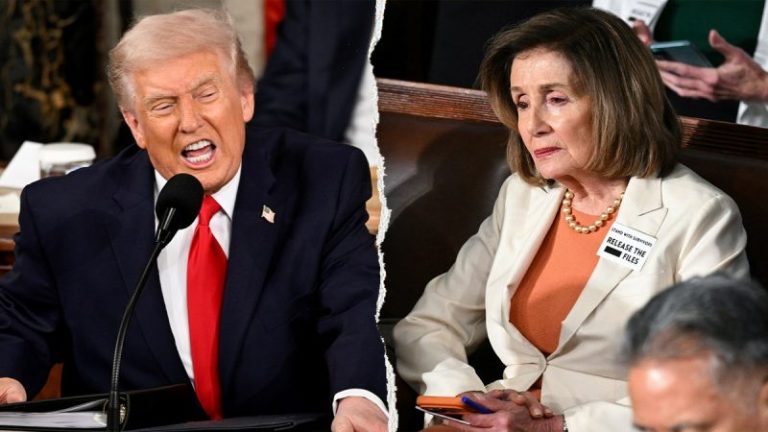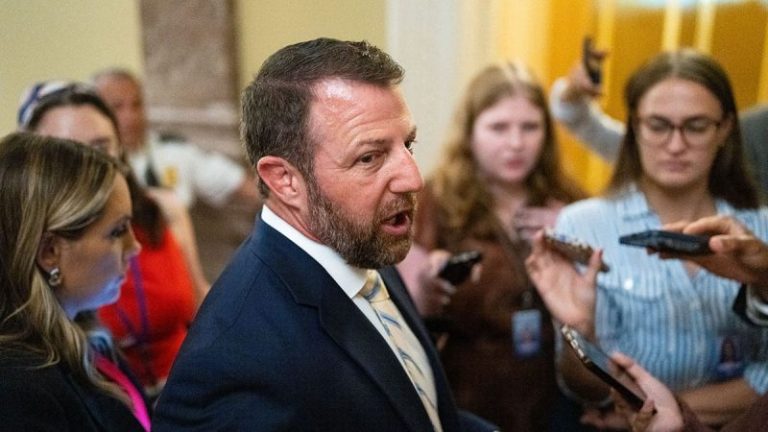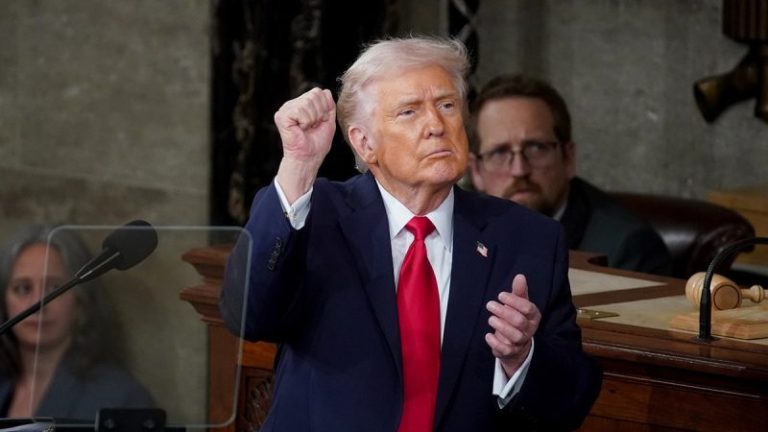Gold royalty companies offer investors exposure to gold and silver with the benefits of diversification, lower risk and a steady income stream.
Royalty companies operating in the resource sector will typically agree to provide funding for the exploration or development of a resource in exchange for a percentage of revenue from the deposit if it begins producing. Similarly, a company with a streaming model may work out an agreement with a resource company for a share of the metal produced from a deposit in exchange for an investment.
These kinds of arrangements benefit both parties. Streamers get access to the underlying commodity at a fixed price and are shielded from cost overruns and spikes in production. Further, if there is a price decrease the metals can be warehoused until the market conditions improve.
In both cases, mining companies receive considerable upfront investment during the expensive construction and expansion phases, and unlike loans these investments have longer-term payouts at a fixed amount.
Let’s take a deeper look at how royalties and streaming works, the benefits of the royalty business model, and the gold and silver royalty and streaming stocks you can invest in.
In this article
How do gold and silver royalties work?
Gold and silver royalty agreements involve royalty companies agreeing to provide funding for the exploration or development of a precious metals resource in exchange for a percentage of revenue from the deposit if it begins producing metals.
The foundation for royalties dates back a few hundred years. Originally, they were payments made to the British monarchy in exchange for miners’ rights to operate gold and silver mining operations on lands held by the crown. Today, these arrangements still exist, with mining operators paying the government a share of the revenues generated from exploiting resources on public lands.
The first royalty paid to a company in the gold sector was an agreement in 1986 in which Franco-Nevada (TSX:FNV,NYSE:FNV) made a US$2 million investment into Western States Minerals’ Goldstrike small heap-leach mine in Nevada, US, for a 4 percent share of revenues collected from the mine. Western States was sold the same year to Barrick Gold (TSX:ABX,NYSE:GOLD). Barrick discovered a far larger resource at the site, and the royalty has since earned Franco-Nevada more than US$1 billion and continues to pay out approximately US$20 million per year.
This early example set a precedent for the industry. It saw Franco-Nevada, which was then a gold exploration company, lock itself into what became one of the largest gold mineral resources in the world at a relatively low overhead while avoiding future costs associated with the growth and maintenance of the mine.
How do gold and silver streams work?
Gold and silver streams work in a similar manner to the royalty model but returns are in the form of physical metals rather than funds. In return for investing in an asset, a gold streaming company may work out an agreement with a resource company for a share of the metal produced from a deposit, or for the ability to purchase the metal at a lower price than market value.
This is also a popular model with base metal mining companies whose operations result in gold and/or silver by-products. In these cases, gold and silver streaming companies may work out a deal with a base metal mining operation to take delivery of a certain amount of precious metals at an agreed upon price.
The Goldstrike royalty made Franco-Nevada what it is today, but its largest contributing asset in its portfolio is a deal with Lundin Mining (TSX:LUN,OTC Pink:LUNMF) for a stream of the gold and silver resources extracted from its Candelaria copper mine in Chile.
Under the terms of the deal, which was part of Lundin’s 2014 acquisition of Freeport-McMoRan’s (NYSE:FCX) stake in Candelaria, Franco-Nevada provided a US$648 million deposit in exchange for a 68 percent stream of the asset’s silver and gold. This will decrease to 40 percent once 720,000 ounces of gold and 12 million ounces of silver have been delivered.
While Franco-Nevada does have to pay for the metal, the agreed upon amount is far under the current market value. At the time, the deal was set at US$400 for each ounce of gold and US$4 per ounce of silver with a 1 percent inflationary adjustment, or market price if that was less.
Are royalty and streaming companies a good investment?
Royalty and streaming companies are largely seen as a lower-risk investment than mining companies. Lower operational costs and higher portfolio diversification means they are hedged against a mine shutdown, natural disaster, market forces or the politics that may affect the nature of an operation or project. However, that’s not to say royalty and streaming deals aren’t without their risks.
In many ways, gold royalty companies are like venture capitalists in the tech industry, working to fund many projects in the hopes that some will see big payoffs that offset the loss from the ones that don’t make it. This means they need large access to funding in order to build their portfolios.
To get funding, royalty and streaming companies have several options: using cash on hand, raising debt through loans or issuing more shares. Each of these options carries risk. Using cash to pay for investments could reduce the size of the safety net and eat into company liquidity, debt needs to be managed to ensure that payments don’t exceed income and the issuance of stock could lead to an overall devaluation of share price and impact investor sentiment.
Once companies have developed strong cash flows and good liquidity, they are able to take advantage of their own reserves, without the need to worry about loans or stock dilution. The same cannot be said for the up-and-coming companies who need to rely on external funding to make deals, making them riskier.
These companies provide a good entry point for investors with lower share price, and have more potential to return higher percentage gains in share price, they also bear more risk. With more reliance on raising external capital, there is a greater need for deals to be successful and a greater chance for a company to incur more debt load or stock dilution.
Diverse portfolios can help reduce the risk associated with a royalty company, and companies like Franco-Nevada have the industry knowledge and financial capital to take some risks. As of February 2025, the company has 430 assets on their books; of those, 119 are producing, and 38 are in the advanced stages of development. It’s the 273 more that are in the exploration phase, many of which will never provide returns, that represent the greatest risk.
Of course, unforeseen events can affect both mining and royalty companies alike, particularly when assets that take up a larger percentage or a portfolio are affected. Franco-Nevada had more than US$1 billion invested in First Quantum’s (TSX:FM,OTC Pink:FQVLF) Cobre Panama mine before it was shuttered by the Panamanian government following protests at the end of 2023. The mine brought in US$223.3 million for Franco-Nevada in 2022 and represented nearly a quarter of its precious metal income. While it fared better than First Quantum, the royalty company’s share price took a significant hit.
Top 5 gold and silver royalty companies
The biggest companies in the precious metals royalty and streaming space have long histories and have built positive reputations on the backs of strong investments. They offer a means for investors to de-risk an entry into the gold sector by maintaining an arms-length attachment to it.
The five large-cap gold and silver royalty and streaming companies on this list had market caps above $1 billion in their respective currencies as of February 24, 2026.
1. Wheaton Precious Metals (TSX:WPM,NYSE:WPM)
Market cap: C$96.95 billion
Share price: C$215.66
Wheaton Precious Metals was established in 2004 as Silver Wheaton with a focus on silver streaming. Goldcorp held a majority interest, but began to reduce it in 2006 and by 2008 had completely divested itself. By that time, Silver Wheaton had begun to diversify into other precious metals. The following year, Silver Wheaton acquired rival silver streaming stock Silverstone Resources in a C$190 million deal.
Silver Wheaton changed its name in 2017 to Wheaton Precious Metals and has since built itself into one of the largest players in the gold and silver royalty and streaming space, with investments in 23 operating mines and 25 development projects across five continents.
Included in Wheaton’s assets are investments in Newmont’s (TSX:NGT,NYSE:NEM,ASX:NEM) Peñasquito mine in Mexico, Sibanye Stillwater’s (NYSE:SBSW) Stillwater and East Boulder mines in Montana, United States, and Hudbay Minerals’ (TSX:HBM,NYSE:HBM) Copper World Complex project in Arizona, US.
2. Franco-Nevada (TSX:FNV,NYSE:FNV)
Market cap: C$71.55 billion
Share price: C$374.47
A trailblazer in the gold royalty business, Franco-Nevada has set a high bar. The current iteration of the company was spun out of Newmont in what became a C$1.1 billion initial public offering, one of the biggest IPOs of 2007.
Franco-Nevada now has a portfolio of royalties and streams on 119 producing assets around the world including gold, silver, base metal and oil and gas operations, which generate more than US$1.2 billion for the company annually. Additionally, the company’s portfolio includes 38 advanced-stage assets and 273 exploration-stage assets.
Among the producing assets for which Franco-Nevada has precious metals streams and royalties are Glencore’s (LSE:GLEN,OTC Pink:GLCNF) Antapaccay mine in Peru, Agnico Eagle’s (NYSE:AEM,TSX:AEM) Detour Lake mine in Ontario, Canada, and Gold Fields’ (NYSE:GFI) Salares Norte mine in Chile.
See the sections above for more information on Franco-Nevada’s royalty and streaming deals.
3. Royal Gold (NASDAQ:RGLD)
Market cap: US$24.43 billion
Share price: US$288.04
Royal Gold got its start in 1981 as oil and gas exploration and production company Royal Resources.
Responding to shifts in the overall resource market, by 1987, Royal Gold was born with a focus on building a portfolio of minority positions in significant gold properties operated by major mining firms.
Today, Royal Gold is a leading precious metals streaming and royalty company with interest in about 400 properties, of which 82 are producing assets, across 31 countries.
About half of its portfolio came from its October 2025 acquisition of Sandstorm Gold and Horizon Copper, which combined for 230 royalty assets, including 40 producing assets.
Among Royal Gold’s royalty assets are Barrick Mining (TSX:ABX,NYSE:B) and Newmont’s Cortez mine in Nevada, US, Teck’s (TSX:TECK.A,TECK.B,NYSE:TECK) Andacollo mine in Chile and Centerra Gold’s (TSX:CG,NYSE:CGAU) Mount Milligan mine in British Columbia, Canada.
4. Triple Flag Precious Metals (TSX:TFPM)
Market cap: C$10.96 billion
Share price: C$53.67
Triple Flag Precious Metals was founded in 2016 by Shaun Usmar, a former Barrick executive and current CEO of Vale’s (NYSE:VALE) Vale Base Metals.
Although the company is a relative newcomer to the royalty and streaming space, it has quickly established itself as a frontrunner through several significant deals. Among them was the acquisition of Maverix Metals in January 2023, which helped them become the fourth-largest precious metals royalty company.
Today, Triple Flag has a global portfolio of gold and silver assets on nearly every continent, comprising 33 production assets and 206 in development or exploration.
Highlights from its portfolio include streaming and royalty deals on Evolution Mining’s (ASX:EVN,OTC Pink:CAHPF) Northparkes mine in New South Wales, Australia, Nexa Resources’ (NYSE:NEXA) Cerro Lindo mine in Peru, and Westgold Resources’ (ASX:WGX,OTC Pink:WGXRF) Beta Hunt mine in Western Australia.
5. OR Royalties (TSX:OR,NYSE:OR)
Market cap: C$11.49 billion
Share price: C$62.31
Previously named Osisko Gold Royalties, OR Royalties was created in 2014 as a spinoff deal between Osisko Mining (TSX:OSK), Yamana Gold and Agnico Eagle Mines (TSX:AEM,NYSE:AEM). The deal was made in an attempt to prevent a hostile takeover of Osisko Mining and its Canadian Malartic gold complex by Goldcorp, now part of Newmont.
In the deal, OR Royalties carried with it a 5 percent net smelter return royalty from the Canadian Malartic mine. Now owned by Agnico Eagle, the complex in Québec remains a cornerstone of the royalty company’s business today.
The gold and silver royalty and streaming company has gone on to amass royalties, streams and offtakes for 195 assets, 22 of which are producing, across six continents.
The majority are located in North America, including one of the most well-known gold-producing mines in the world, Agnico Eagle’s Canadian Malartic complex in Québec, as well as SSR Mining’s (NASDAQ:SSRM,TSX:SSRM) Seabee mine in Saskatchewan, Canada, and Kinross Gold’s (TSX:K,NYSE:KGC) Bald Mountain mine in Nevada.
Small-cap gold and silver royalty companies
There are also small-cap gold and silver royalty and streaming companies you can invest in and offer a lower-cost option for investors who are comfortable with a little more risk. Like their larger counterparts, small-cap gold royalty stocks offer a lower-risk investment than getting into a small-cap mining company but still provide access to the underlying precious metals market.
The five small-cap gold and silver royalty companies on this list had market caps above $10 million in their respective currencies as of February 24, 2026.
1. Gold Royalty (NYSEAMERICAN:GROY)
Market cap: US$1.04 billion
Share price: US$4.59
Gold Royalty is building a diversified portfolio of more than 240 gold royalty and gold streaming interests based on net smelter return royalties on properties in the Americas.
The company’s revenue generating investments include Agnico Eagle’s Canadian Malartic complex in Québec, DPM Metals’ (TSX:DPM) Vareš mine in Bosnia and Herzegovina, and Discovery Silver’s (TSX:DSV,OTCQX:DSVSF) Borden mine in Ontario.
2. Metalla Royalty & Streaming (TSXV:MTA,NYSE:MTA)
Market cap: C$1.04 billion
Share price: C$11.67
Metalla Royalty & Streaming focuses on gold, silver and copper projects. The company’s royalty model involves acquiring royalties and streams by offering resource companies Metalla shares and cash.
The mid-tier royalty and streaming company’s asset portfolio includes more than 100 projects across North America, South America and Australia. Its cornerstone assets include IAMGOLD (TSX:IMG,NYSE:IAG) and Sumitomo Metal Mining’s (OTC Pink:SSUMF,TSE:5713) Côté gold mine in Ontario, Canada, and First Quantum Minerals’ (TSX:FM) Taca Taca project in Argentina.
3. Vox Royalty (TSX:VOXR,NASDAQ:VOXR)
Market cap: C$518.16 million
Share price: C$7.81
Vox Royalty is a precious metals focused royalty company first established in 2014. The company has acquired an asset portfolio of 70 royalties, 32 of which were added since 2019, across Australia, the Americas and South Africa.
Roughly 70 percent of its portfolio is dedicated to gold, silver and platinum group companies. The remainder of its portfolio is diversified across a wide range of resources, including copper, uranium, iron and diamonds.
The majority of the eight producing assets in its portfolio are located in Australia, including a 1 percent net smelter return from Black Cat Syndicate’s Bulong gold mine, and a 2.5 percent net smelter return from Northern Star Resources’s (ASX:NST,OTCPL:NESRF) Otto Bore gold mine.
As for development stage projects, its assets in Canada include a 1 percent net smelter return on NexGold Mining’s (TSXV:NEXG,OTCQX:NXGCF) Goldlund project and a 2 percent gross proceeds royalty on Alamos Gold’s (TSX:AGI,NYSE:AGI) Lynn Lake project in Canada.
4. Sailfish Royalty (TSXV:FISH,OTCQX:SROYF)
Market cap: C$324.08 million
Share price: C$3.79
Founded in 2014, Sailfish Royalty’s asset portfolio is much smaller than the other gold royalty stocks on this list. It consists of one producing mine as well as two development-stage and two exploration-stage properties in the Americas.
In Nicaragua, Sailfish has a gold stream equivalent to a 3 percent net smelter return on Mako Mining’s (TSXV:MKO,OTCQX:MAKOF) San Albino gold mine and a 2 percent net smelter return on the area surrounding the mine. The company also holds a 13,500 ounce per quarter silver stream at the property, which was set to expire in May 2025. At the end of April 2025, Sailfish chose to exercise its option to purchase all silver for the life of the mine.
5. Nations Royalty (TSXV:NRC,OTCQB:NRYCF)
Market cap: C$160.68 million
Share price: C$1.16
Nations Royalty is a fledgling royalties company that first began trading in June 2024 and holds Indigenous-owned royalties. It was founded by the Nisga’a Nation of British Columbia, Canada, and by Wheaton Precious Metals co-founder Frank Giustra. It is the first publicly traded company in Canada to have a majority Indigenous ownership.
The company has a portfolio of royalties covering one production and four development assets, all located in Northwestern British Columbia. The majority of these royalties are in the form of annual payments equal to a percentage of the mineral tax the assets’ operators pay.
The producing mine in its portfolio is Newmont’s (NYSE:NEM,ASX:NEM) Brucejack gold-silver operation. The four development assets consist of Ascot Resources’ (TSX:AOT,OTCID:AOTVF) Premier and Red Mountain projects, Seabridge Gold’s (TSX:SEA,NYSE:SA) KSM project and New Moly’s Kitsault molybdenum project.
Gold and silver royalty ETFs
Those who want more broad exposure to the precious metals markets may want to buy shares of an exchange-traded fund that includes gold and silver royalty and streaming stocks. Here are a few to get you started, including ASX gold ETFs and a US gold ETF.
Betashares Global Royalties ETF (ASX:ROYL)
The Betashares Global Royalties ETF is an Australian ETF that tracks the performance of an index of global companies that earn a significant amount of their revenue from royalty income, royalty-related income and intellectual property income. The fund’s top two holdings are Wheaton Precious Metals and Franco-Nevada, with Royal Gold and OR Royalties also among its significant holdings.
Betashares Global Gold Miners ETF (ASX:MNRS)
The Betashares Global Gold Miners ETF tracks the performance of an index of the world’s largest gold mining companies outside of Australia, hedged into Australian dollars. Wheaton Precious Metals, Franco-Nevada and Royal Gold are also among the fund’s top holdings.
VanEck Gold Miners ETF (ARCA:GDX)
The VanEck Gold Miners ETF is a US gold ETF that aims to replicate the performance of the MarketVector Global Gold Miners Index by holding large-cap gold mining stocks and precious metals royalty companies. As with the other gold ETFs on this list, its top holdings include Franco-Nevada, Wheaton Precious Metals and Royal Gold.
Securities Disclosure: I, Dean Belder, hold no direct investment interest in any company mentioned in this article.










